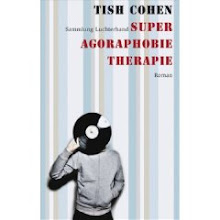ANXIETY
We are all born hardwired for how we handle anxiety, some of us are not anxious at all – some of us are very anxious. In addition to that hard-wiring, life events and experiences push us up or down the continuum. Some anxiety is good safe choices but we want to make sure that our children control their anxiety so it doesn’t control them. We don’t want their worries and fears to get in the way of enjoying and participating fully in their lives.
The best way to determine if your child has a problem with anxiety is to think about whether it is stopping them from doing the things they want to. Does it make them feel badly about themselves? Do they spend a lot of time clinging and crying or if they’re older withdrawing. Do they feel great distress when separating from you? Do they worry way in advance about things that have not happened yet? Do they constantly complain of headaches, stomach aches or dizziness? Any physical symptoms should be checked out by a doctor but you can ask your child’s pediatrician to investigate anxiety if this is a theme for your child.
Parents should also understand that some children are happy even though they tend to stand on the sidelines. It is not always anxiety some children prefer to observe and take things in tackling tasks or activities when they are ready. It’s important to know when it’s our issue versus theirs.
Children don’t always show the typical or obvious signs of anxiety that we might think of, sometimes demanding behavior, extreme bossiness temper tantrums and sleep disturbances can all be symptoms of anxiety.
Here’s what to do:
Get Connected: Spend more cuddle time with young children and spend more alone time with teenagers. Children feel safe and more secure when they feel deeply loved.
Fight or Flight Response: When a child is feeling anxious, their fight or flight instincts might kick in. This means their brain is not letting them think rationally, so when a parent tries to rationalize the situation, the child feels like they aren’t being listened to. Instead, ask lots of questions about how they are feeling, and put some urgency in your voice, without sounding anxious yourself. This will show you get that they are worried, and will help them get back to a place where they can hear the logical things you have to say.
Give it a Name: Don’t talk about your child being afraid, because this makes it seem like something that they can’t fix. Give it a name, like the “worry bug” for older kids or teens just refer to it as the worry that gets in the way. Then you can work together to come up with ways to reduce it. This helps kids to control their emotions.
Get the Control back: Kids are exposed to a lot of adults themes – and they are not socially or emotionally prepared to deal with these. Set limits on behavior and the things you kids are exposed to. When kids see that parents don’t have control they get nervous about who will take care of them, this aggravates anxiety.
Scaling: Get your kids to rate their anxiety and use deep breathing or positive imagery to bring the number down.
Calm yourself: Sometimes children come by there anxiety honestly. Use the same techniques to make sure you are calm. Kids often gauge their responses based on ours.
Jennifer Kolari, MSW, RSW
www.connectedparenting.ca
Sunday, May 11, 2008
Managing Anxiety in Children by Family Therapist Jennifer Kolari, MSW, RSW
Labels:
anxiety,
distress,
dizziness,
sleep problems,
temper tantrums
Subscribe to:
Post Comments (Atom)




10 comments:
Thanks for this post. Your book is much needed. Anxiety and stress in children (and hence, families) is a huge subject waiting to explode (or maybe it already has). Parents are dealing with kids who are overwhelmed by the seduction and distractions of our culture. And that's under normal circumstances. In the last week, we started writing notes to our son when we have to communicate emotionally charged, stress producing information. The letter neutralizes the emotions for both parents and child. And, dare I say it?? It's been helpful!
Jessica
You're right, Jessica. Anxiety is a huge subject that is greatly in need of addressing by experts. What a wonderful idea about writing notes to communicate tough information. How did you come up with it?
hello great Managing about Anxiety in Children by Family Therapist Jennifer Kolari, MSW, RSW, do you have Managing about Generic Viagra
am 14 years old and i want to take anti-anxiety pills because i am always nervous for everything. i shake and my face goes bright red, which ends up giving me more anxiety. my heart races when it comes down for a test i break down and cry the night before even if i know i will do fine. i really feel like i need something to stop this, but if i ask my parents about it they will just say "your fine, you dont need any medication, its normal to get nervous for stuff" and they will think that i am over reacting. maybe i am over reacting, but i feel like i cant go on anymore living this way! i fear any social situation. do you think i should ask my parents if i can get anti-anxiety medication from my doctor? what are some pills that wont make me gain weight, because that is one of the big things i have anxiety with. how will the pills help and what are some of the side effects? im starting high school next year and i go to an easy school right now, so i will go crazy next year w/out pills!
Generic Viagra
Hi,
I am The assistant editor with anxiety.net. I really liked your site and I am interested in building a relationship with your site. We want to spread public awareness. I hope you can help me out. Your site is a very useful resource.
Please email me back with your URl in subject line to take a step ahead and to avoid spam.
Thank you,
Kathy
kathy.anxiety.net@gmail.com
hello friend very interesting post about Managing Anxiety in Children by Family Therapist Jennifer Kolari, MSW, RSW
ANXIETY thanks for sharing!!
I have been dealing with anxiety all my life. When I was a kid, I would withdraw from people. My mom thought I was just shy but as I grew older, I didn't grow out of it. I am now dealing with social anxiety disorder.
Thanks for this blog. It is important for parents to understand the signs of anxiety a child is going through.
http://www.whatcausesanxiety.org/
Nice article. I wrote about one other "side effect" of anxiety in children -- anger.
Of course anger is a gateway to aggressive behavior which often leads to counseling or medication for a child.
These cases can go misdiagnosed and cause great problems for the anxious child ..really just making the real cause of the problem -- anxiety -- even worse!
For the children is so difficult to control their anxiety, because they normally don't think their actions very well, however if there is a method to help them (or to teach us how helping them) we have to take advantage of it, due to the fact, this could be beneficial for their normal development.
It's very important to control anxiety disorders.
Post a Comment